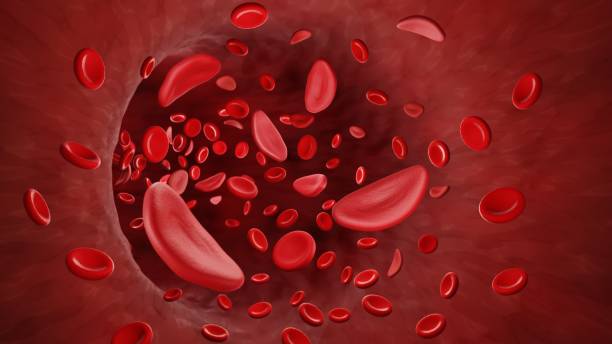An Overview To Sickle Cell Anemia
Gunjan
June 19, 2023
Sickle cell anemia is an inherited blood disorder characterized by abnormal hemoglobin, a protein responsible for carrying oxygen in red blood cells. In individuals with sickle cell anemia, the hemoglobin molecules are abnormal, causing the red blood cells to become stiff and take on a crescent or "sickle" shape. These sickle-shaped cells can become trapped in blood vessels, leading to various complications.
The primary cause of sickle cell anemia is a mutation in the gene that provides instructions for making hemoglobin. This mutation results in the production of abnormal hemoglobin known as hemoglobin S. Sickle cell anemia is an autosomal recessive disorder, meaning that a person needs to inherit a copy of the mutated gene from both parents to develop the condition.
The symptoms and complications of sickle cell anemia can vary in severity. Some common signs and symptoms include:Fatigue and weakness
Shortness of breath
Pale skin
Jaundice (yellowing of the skin and eyes)
Episodes of severe pain called "crises"
Delayed growth and development in children
Frequent infections
Vision problems
Organ damage, including damage to the spleen, liver, kidneys, and lungs
Sickle cell anemia can be diagnosed through a blood test that analyzes the shape and characteristics of red blood cells. Genetic testing can also be done to identify the specific mutation causing the condition.
While there is no cure for sickle cell anemia, various treatment options are available to manage its symptoms and prevent complications. These may include:Pain management: Medications are used to relieve pain during crises.
Blood transfusions: Transfusions can help increase the number of healthy red blood cells in circulation.
Hydroxyurea: This medication can reduce the frequency and severity of pain crises.
Bone marrow transplant: In certain cases, a bone marrow transplant may be an option to cure sickle cell anemia. However, it is a complex procedure with potential risks.
It's important for individuals with sickle cell anemia to manage their condition with regular medical care, including vaccinations, adequate hydration, and avoiding triggers that can lead to crises, such as extreme temperatures or high altitudes. Genetic counseling may be beneficial for individuals and families affected by sickle cell anemia to understand the inheritance pattern and make informed decisions.
Popular Posts
Featured Post
Staff, angry passenger debate over ‘Halal tea’, Railways issues clarification
Gunjan
July 23, 2023
Staff, angry passenger debate over ‘Halal tea’, Railways issues clarification The pass…
Technology
3/Technology/post-list
Categories
Most Recent
3/recent/post-list
Random Posts
3/random/post-list



0 Comments